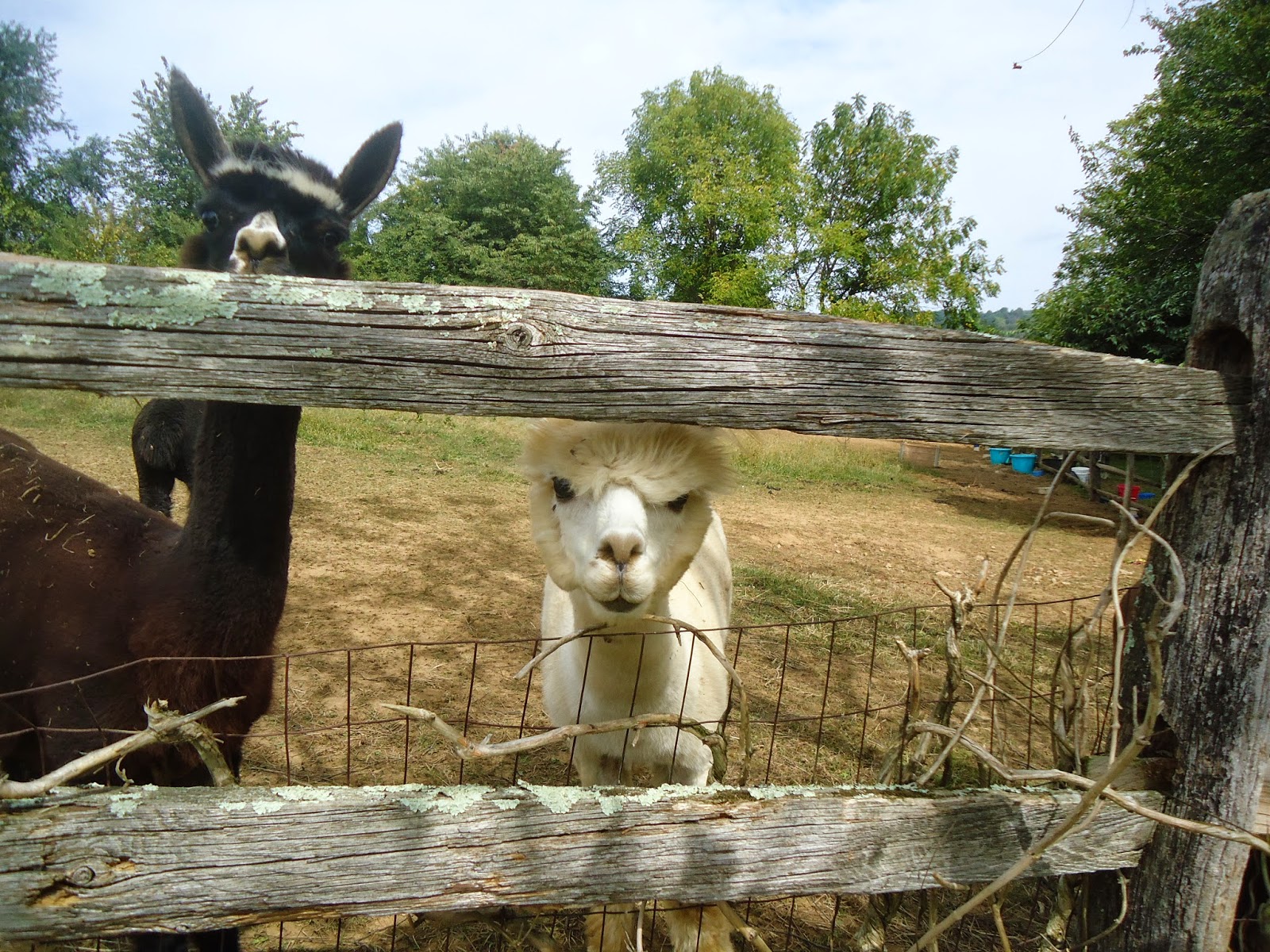This past weekend, we had blast helping our animal friends!
The Bucks County S.P.C.A www.bcspca.org had a booth at The Peace Fair at The Buckingham Friends School, and my daughter and I, along with two other volunteers, were there to answer questions and show off two of the shelter dogs-Ranger, a sweet and very gentle Pit Bull and Zoe a cute-as-a-button, Bichon Frise.
The weather was gorgeous, and our dogs got alot of attention while strolling through the festival.
They received many compliments and inquires!
On Sunday, we headed out to Newtown Square, and our friend, Cynthia's, alpaca farm.
We spent the afternoon helping her feed the alpaca and the goats. And my husband did some paint scraping to ready the farm for it's new barn paint.
London absolutely loves all the animals and is totally engaged with them the entire time!
I think her favorite is a chubby orange and white love bug named Rudy!
The Bucks County S.P.C.A www.bcspca.org had a booth at The Peace Fair at The Buckingham Friends School, and my daughter and I, along with two other volunteers, were there to answer questions and show off two of the shelter dogs-Ranger, a sweet and very gentle Pit Bull and Zoe a cute-as-a-button, Bichon Frise.
The weather was gorgeous, and our dogs got alot of attention while strolling through the festival.
They received many compliments and inquires!
On Sunday, we headed out to Newtown Square, and our friend, Cynthia's, alpaca farm.
We spent the afternoon helping her feed the alpaca and the goats. And my husband did some paint scraping to ready the farm for it's new barn paint.
London absolutely loves all the animals and is totally engaged with them the entire time!
I think her favorite is a chubby orange and white love bug named Rudy!
 |
| London and Mr. Rudy |






Comments
Post a Comment
Your comments are welcome!